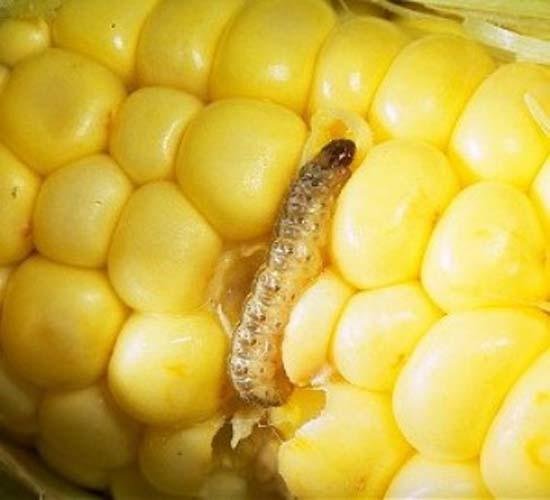Natural and Organic Garden Borer Control
Garden borers affect vegetables, trees, and flowers in a way no other caterpillar pest does, eating plants from the inside out. Kill these insects using organic methods.
Of all the caterpillar pests in the garden, borers are the most insidious. The first sign of their damage is often a dead plant. However, gardeners with a keen eye can spot these pests early and control them with organic methods.
Garden Borer Identification
Borers are the immature caterpillar larvae of several species of moths. Unlike most caterpillars, borers don’t have any markings for camouflage. They don’t need these defensive measures. It’s rare to see borers, as they do their dirty work on the inside of stems, roots, and branches. Organic gardeners growing susceptible plants should be aware of their vulnerability to borers, and must watch for corn borers, peach tree borers, iris borers, apple tree borers, fruit borers, and squash borers.
Borers are about one inch long, and white with a brownish head. They closely resemble grubs, but grubs live underground and mature into beetles. When borers hatch from eggs, they quickly burrow into the plant, often leaving a telltale entry hole that may be marked with sap or sawdust. Affected plants often wilt, even though the soil may be moist.

Physical Tree Borer and Iris Borer Control
Gardeners can control many caterpillars by handpicking, but borers are difficult to access in their host plant. Gardeners can carefully drive a thin wire, such as that used in flower arrangements, into a rigid stem that can withstand this probing. Make several passes to ensure that the intruder is impaled.
If iris borers are affecting the flower garden, the gardener may need to sacrifice a few rhizomes to control the problem. Bacterial rot often accompanies a borer infestation, so gardeners should dig up and destroy any damaged iris rhizomes.
Parasitic Nematodes for Borers
Steinernema carpocapsae and Heterorhabditis bacteriophoraare are two types of parasitic nematodes that hunt down and kill moth larvae in moist conditions. They are especially effective against iris borers, as the nematodes can travel freely through moist soil, but organic gardeners can also inject these microscopic roundworms into borer holes.
Garden Borer Prevention
Because borers are difficult to detect, organic gardeners are wise to prevent their infestation. Borers are opportunistic pests, in that they gravitate toward plants that are weak or injured. Therefore, deny them easy access to woody plants by avoiding wounds caused by trimmers and lawn mowers.
Floating row covers are effective for plants in the vegetable garden including squash, melons, and cucumbers. Apply the covers early in the season, before moths lay their eggs. Remove the covers after flowering to allow for pollination.
Source:
Ellis, B., & Tenenbaum, F. (Eds.). Organic Pest & Disease Control. Houghton Mifflin Company: Boston.
Photo credit: Grit